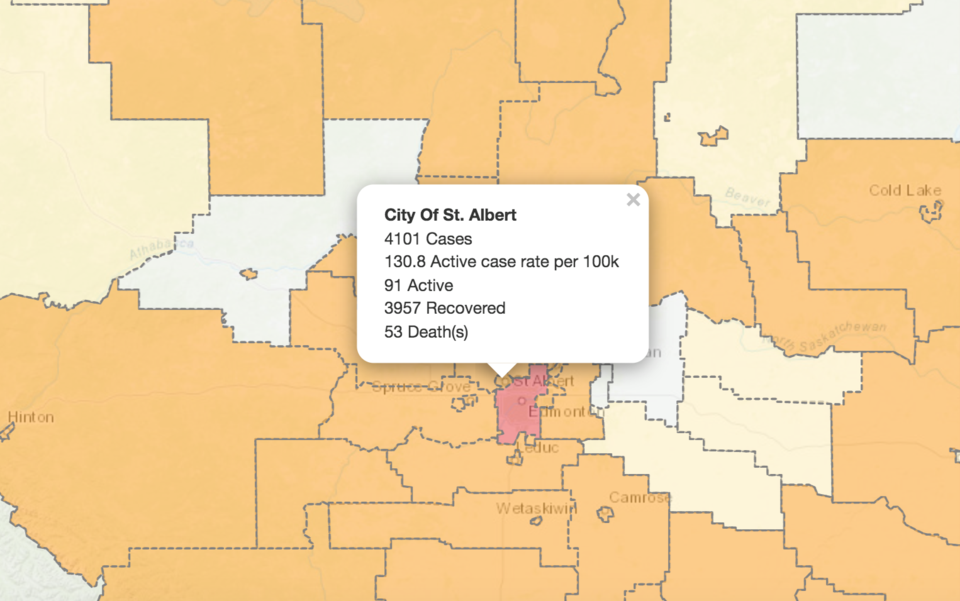The province is closely monitoring a new COVID variant that has not yet been seen in Alberta.
On Monday, Nov. 29, Premier Jason Kenney, along with Alberta's chief medical officer of health Dr. Deena Hinshaw, gave a COVID update on Omicron, a variant first detected in South Africa on Nov. 24.
“While it is still early, and global public-health officials are working quickly to learn more, initial evidence suggests this variant has [an] increased number of mutations and increased transmissibilities,” said Kenney during the update.
Not much is known about Omicron, but on Friday the World Health Organization designated the variant as a variant of concern.
The Public Health Agency of Canada reported two cases of the variant in Ontario over the weekend.
“Both of these individuals had recently travelled back from Nigeria and are now in isolation. I understand more cases have been reported today,” said Kenney.
The federal government has enhanced border measures to countries identified as having Omicron risk.
Kenney said he is pleased the federal government has implemented enhanced measures, and Alberta will also take action by screening for the new variant through a provincial genetic sequencing program.
“This robust program can detect all known strains of the virus, including the Omicron virus variant,” said Kenney.
Kenney said 156 Albertan travellers have been identified as having returned from one of the countries on the list as having Omicron risk and said these travellers have been contacted with information on current protocols, including testing and quarantine requirements. These travellers have also been offered PCR tests and household rapid testing kits.
“To be clear, no one has tested positive here, but we're working with these individuals to reduce any chance of spread,” said Kenney.
Hinshaw said though there are unanswered questions about the new variant, health officials know more about COVID then they did before.
“This knowledge means we are not going back to step zero. We still have a lot of tools at our disposal to address this new variant,” Hinshaw said.
The provincial lab is screening positive COVID samples for previously known variants, and in the past week 99.8 per cent of those have been the Delta variant.
“All samples that screen negative for Delta are sent for full genetic sequencing,” she said.
Hinshaw said the province is also implementing additional processes for COVID cases identified in returning international travellers, including:
- expanded case investigation, contact tracing, and notification;
- PCR testing recommendations for close contacts along with the addition of rapid-testing options for household contacts;
- immunized and partially immunized close contacts of a confirmed case in any returning international traveller will be asked to quarantine at home for 14 days after their last contact with the case.
“If cases in a recently returned international traveller are identified in schools or child-care facilities, all class or cohort contacts will be notified and will be advised to get tested through [Alberta Health Services],” she said.
Retrospective case investigations will be done if a positive Omicron result is found in someone with no travel history.
“Close contacts will be advised to be tested for COVID-19 regardless of when they were exposed to the infected individual,” she said.
If it is found Omicron does not pose any new risks, Hinshaw said these measures will be reassessed.
Dr. Verna Yiu, CEO of Alberta Health Services, also spoke during the update on Monday afternoon.
Yui said AHS is adjusting the deadline for staff to be fully immunized. The new date is Dec. 13.
This was done to accommodate a new testing option, which will also be brought in on Dec. 13 to targeted AHS locations.
“Frequent testing will be an option at a site where a sole medical device reprocessing technician has decided not to be immunized and no other staffing options are available at this time,” said Yui.
It is anticipated 260 employees spanning 16 locations will be eligible and will be required to provide proof of a negative Health Canada-approved COVID-19 test that has been completed no more than 48 hours before each of their working shifts at their own cost.
There are around 3,000 AHS staff who remain unvaccinated. Staff ineligible for the testing program will be placed on an unpaid leave of absence.
The province is reporting seven new deaths since Nov. 25, which includes an additional death in St. Albert. Overall, 3,242 people have died from COVID, including 53 St. Albert residents.
Data from the province, current as of Nov. 28, shows St. Albert has 91 active cases of the virus. Province-wide, there are 4,850 active COVID cases.
There are 432 COVID-19 hospitalizations, with 77 of those people in the ICU.
The province is reporting 85.9 per cent of St. Albertans age five and up have received their first dose of the COVID vaccine, while 82.6 per cent of the population age five and up are fully vaccinated.
Provincial totals show 88.7 per cent of the population age 12 and up have had one dose of the vaccine, while 83.8 per cent of the population age 12 and up are fully vaccinated.



